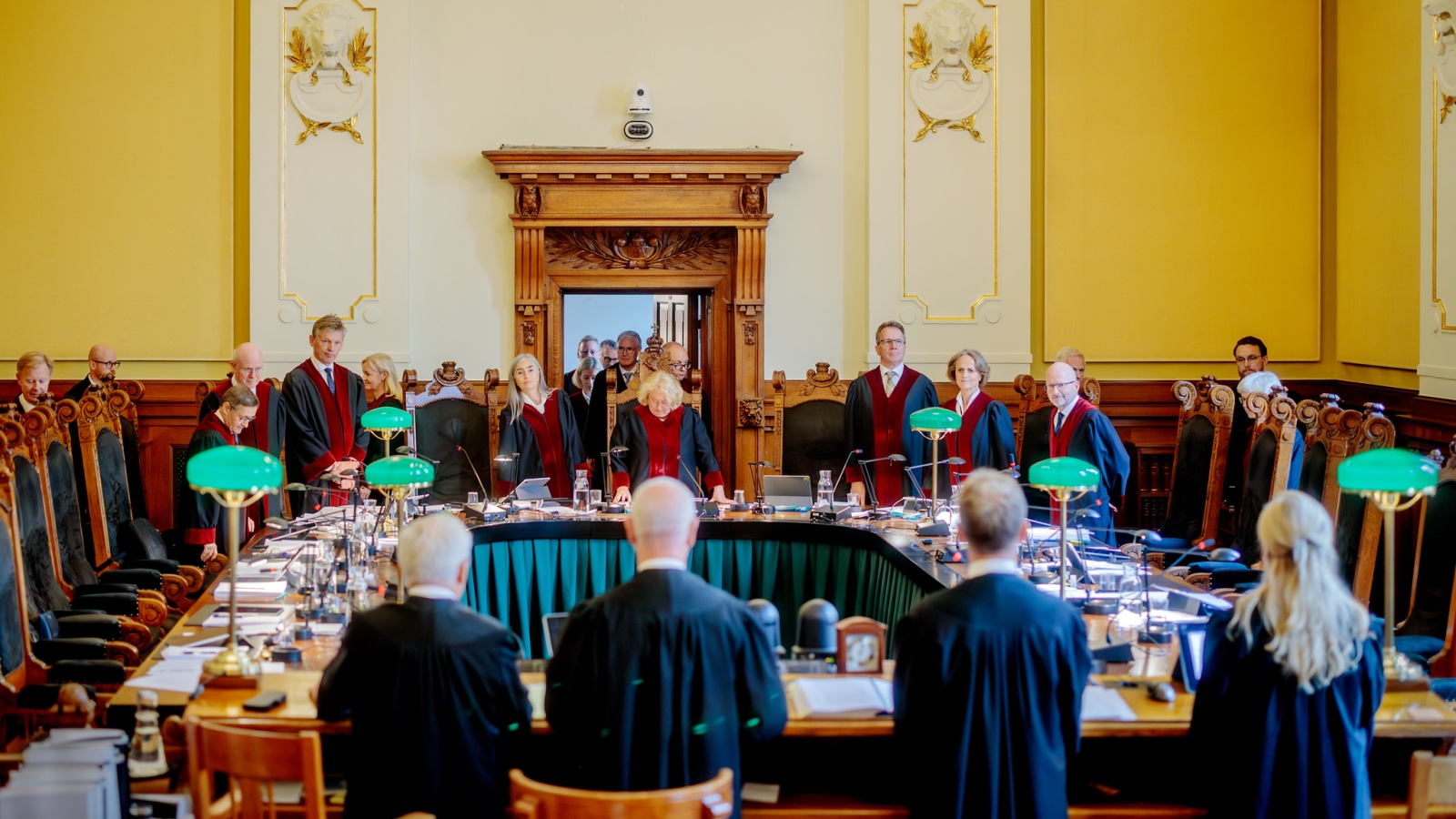Norwegian Supreme Court to rule on ‘unconstitutional’ transfer of sovereignty

The Supreme Court ruling is expected to have political and legal impact that might affect the way forthcoming approval of EEA legislation is handled by the Parliament.
Information for press and media
Feel free to make use of the text below. Please credit ‘Nei til EU’ in case you wish to make use of the attached photo from the Supreme Court proceedings.
The Supreme Court is mulling a case claiming that the Norwegian parliament in 2018 disregarded constitutional obligations when endorsing the Third EU Energy Package as part of the EEA Agreement, thus making it Norwegian law. The lawsuit is brought against the State by the organization ‘No to the EU’, a broad movement with roots back to the referendums in 1972 and 1994, which both resulted in a rejection of Norwegian membership in the EEC, now the EU.
The simple majority vote in Parliament was justified with the term «transfer of authority of a lesser degree», a wording applied for some decades when accepting supra-national EU legislation, albeit non-existent in the text of the Constitution. In order to transfer sovereignty to an international organization of which Norway is a member, in this case the EFTA European Economic Area, paragraph 115 of the Constitution requires a qualified three quarter majority.
In the EEA system, no legislative power can formally be transferred directly to EU institutions; a precondition that was intended to safeguard the sovereignty of Iceland, Liechtenstein and Norway. Instead, the three EFTA states (Switzerland is not part of the EEA Agreement) only transfer power to their ‘own’ institutions within the EFTA pillar in the EEA structure; the other pillar being that of the European Union.
The plaintiff ‘No to the EU’ argues that the actual power which in this case is transferred from Norwegian authorities to the ACER Energy Agency, represents far more than a ‘minor’ interference in public administration of the electricity market.
This being due to the fact that the EFTA Supervisory Authority ESA (mirroring the European Commission) simply rubber stamps ACER decisions before forwarding an identical decision to the National Regulatory Authority. Furthermore, the plaintiff maintains that the Electricity Directive dictates that the regulatory authority “is legally distinct and functionally independent from any other public or private entity” and that its staff may “not seek or take direct instructions from any government or other public or private entity when carrying out the regulatory tasks”.
These requirements, according to the claim, revoke any specific national and political control, a consequence that has been misinterpreted and misunderstood by the Norwegian legislators.
This is the final court proceeding after the case has passed through Norwegian courts for the past five years.
Norway has for more than a century a substantial hydro power production capacity, allowing cheap energy for heavy processing industry as well as for household heating.
Doubling the capacity through interconnectors to the continent and the UK, the former fully subject to the market-based ‘free flow’ transmission and purchasing rules of the EU, has caused previously unimaginable electricity price spikes in Norway through the last couple of years, triggering public outcry in the country.
The outcome of the Supreme Court’s ruling is expected, one way or another, to have impact on Norway’s further integration with the EU. It might also trigger further popular discontent with the EEA Agreement, which has proven not to safeguard sovereignty and national interests, quite the contrary to what was claimed when the agreement came into force in 1994.
The Court’s judgement is expected late September or early October.
More background information can be found on the Supreme Court website
Stort bilde i toppen: Dommerne på vei inn i rettssalen. Høyesterettsjustitiarius Toril Marie Øie midt i bildet. Med ryggen til (f.v.): Advokat Kjell Magnus Brygfjeld og advokat Bent Endresen for Nei til EU; regjeringsadvokat Fredrik Sejersted og advokat Lisa-Mari Moen Jünge for staten ved Utenriksdepartementet.
